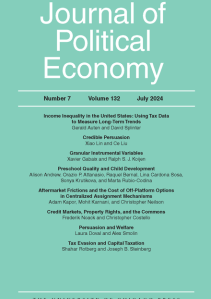This paper contributes to the established literature on fiscal consolidations by investigating the distinct behaviour of central and sub-central tiers of government during general government consolidation attempts. In the light of different degrees of decentralisation across OECD countries, and the different responsibilities devolved to sub-central tiers, we believe that this approach offers an illuminating insight into the analysis of fiscal consolidations and their success.
We show that the involvement of the sub-central tiers of government is crucial to achieving cuts in expenditure, particularly in relation to the overall size of the government wage bill. In addition, central governments appear to exert a strong influence on the expenditure of sub-central tiers through their grant allocations, and control of these allocations appears to have a considerable impact upon the overall success of consolidation attempts. Finally, we demonstrate that there is a skewness in cuts towards sub-central capital expenditure both when central governments cut grant allocations and when sub-central governments engage in lone consolidation attempts.








